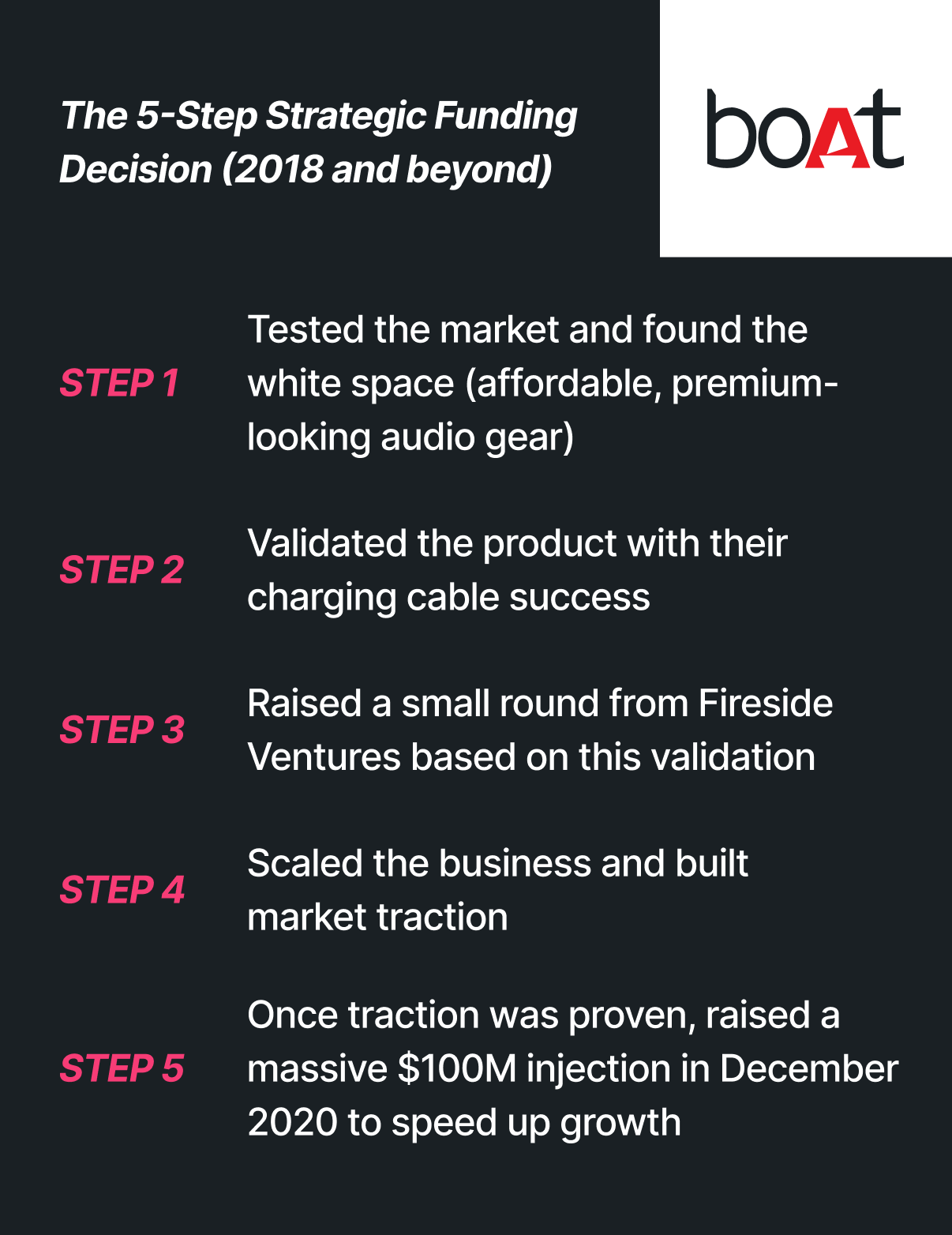- Merito
- Posts
- D2C x Funding
D2C x Funding
60% of funded startups never see series A, here's why:
D2C x Funding vs bootstrap
Hey readers,
Welcome to the sixth edition of D2C Cents!
TLDR - We are your scroll-friendly, no-fluff download of what's shaping India's D2C brands.

This edition? We talk about:
The funding vs bootstrap dilemma keeping founders up at 3 AM
The sharpest D2C news that matters
Milestone moment - we just onboarded our 600th D2C brand on Merito!
Feels surreal helping founders grow, and honestly, it's given us a front-row seat to one of the biggest dilemmas for a founder.
Let's dive right into it.


"Should I bootstrap or raise funding?"
The usual advice is split. Some VCs swear by funding for speed. Others preach how bootstrapping builds discipline.
Here's what they both miss: 90% of Indian startups fail within five years (primarily from running out of cash), while 60% of funded startups never reach Series A.
It’s safe to say that both the camps (bootstrapped or funded) clearly miss a deeper underlying question.
"Have I mastered capital efficiency well enough that funding becomes a strategic choice, not a survival necessity?"
And that’s what we aim to break down today.
The Capital Efficiency Litmus Test
Looking at 100+ D2C journeys (both success and failures), the winners have clear answers to these 4 questions:
1. Are Your Gross Margins Bulletproof?

2. What's Your Growth Vision?
Different for every founder (based on industry and risk appetite)

The Reality Check: Only 24 of 170+ D2C companies were profitable in FY23
3. Is Your Growth Genuinely Organic?

The Test: Are you pulling customers in or pushing products out?
If you are growing sustainably, don't dilute unnecessarily.
4. Are You Treating Equity Like Gold?

The Test: Would debt or revenue-reinvestment solve this better?
Once you've mastered these 4 questions, the next step is understanding how to deploy capital strategically. Think of it like a pyramid-like hierarchy...
The Smart Capital Utilisation

For Example: Bombay Shaving Company raised ₹24 crore from Alteria Capital as venture debt for growth, without diluting equity.
And now that you understand the capital hierarchy, here's a framework to help you make the right decision…
Your Decision Framework (Bootstrapping or Funding)
Bootstrap First If:
Gross margins above 40% and improving
Market allows organic 20-30% annual growth
Cash flow positive or clear path to profitability
You value control and long-term wealth building
Action: Focus on capital efficiency, optimize unit economics, build sustainable systems
Consider Strategic Funding If:
Market opportunity larger than bootstrap can capture
Winner-takes-all dynamics require speed
Clear path to 10x investor returns demonstrated
Ready for board governance and external pressure
Action: Ensure healthy gross margins and raise for strategic expansion only

Action: Fix fundamentals through bootstrap discipline before considering external capital
From someone who has led multiple D2C brands to success:
‘Getting unit economics right is key for success and frugality should be in the DNA of a brand’ - Vivek Gambhir (Former CEO, Boat, Board Member, Mama Earth)
Let's see how this actually works. Here are two brands that aced the capital efficiency game...
Case Study: boAt's PMF-First Approach
BoAt's journey from ₹30 lakh bootstrap to unicorn is a masterclass in capital efficiency.
The Bootstrap Foundation (2014-2018)
Aman Gupta and Sameer Mehta started with ₹30 lakh, solving a simple problem: iPhone cables that break easily.
What Bootstrapping Taught Them:
Product excellence + outstanding marketing
Strategic positioning: "Zara of electronics" (premium but accessible)
Direct consumer communication over expensive marketing blitzes
The Discipline: "While others have burn rate, we have earn rate." - Aman Gupta
And as a result, boAt now sells 4 products every minute

The Numbers: boAt has raised a total of $171M over 9 funding rounds: 3 Seed, 2 Early-Stage, 1 Late-Stage and 3 Debt rounds
Key Lesson: Funding accelerated their success…it didn't create it.
Case Study: Bewakoof's 10-Year Patience
Bewakoof shows why patience in the bootstrap phase builds unshakeable foundations.
The Long Bootstrap Journey (2012-2022)
Started with ₹30,000 by IIT Bombay students, Prabhkiran and Siddharth, from their dorm room.
Why They Stayed Bootstrapped:
Focus on creative, distinctive fashion with humor for millennials
High margins and customer loyalty through differentiated products
"Diving into the startup world can be as simple (or as difficult) as a deep-sea dive. It requires careful planning" - Prabhkiran Singh
Their first office was in a Mumbai slum for ₹6,000/month: tin roof, plastic chairs, extreme heat. This forced operational efficiency and customer obsession.
And before you make your decision, there's one more thing...
The Pressure Reality: What Changes Post-Funding
Here's what actually happens when you take institutional money:
Pre-Funding: Bootstrap Autonomy
Decision Making: Founder-driven, fast pivots
Growth Expectations: Sustainable 20-30% annually
Success Metrics: Profitability and customer satisfaction
Time Horizon: Patient capital, long-term thinking
Post-Funding: Investor Alignment
Decision Making: Board approvals, committee decisions
Growth Expectations: 100%+ year-over-year targets
Success Metrics: User acquisition and market share focus
Time Horizon: 3-5 year exit pressure, quarterly reviews
Rohit Chawla (Founder, The Man Company) says ‘Every founder has to decide what kind of investors they want’
Getting funds is just one aspect of building a brand. Another aspect is getting funds from the right investor.(more on that in a future edition)
To sum up…the right funding strategy is the key to join the 10% startups that succeed.
And talking about strategic plays, let’s look at what’s new in the D2C world this week.


The brands winning today aren't the ones with the biggest war chests but the ones who squeezed every rupee, optimized cash flow and had a strategic roadmap for funding.
Capital efficiency beats capital access. Plan (and raise) accordingly!
See you next edition - same time, sharper insights.
Until then, keep building.
Abhishek



